A recent poll found that 37% of evangelicals are more likely to vote for GOP Senate candidate Roy Moore following allegations of sexual misconduct against him.
That makes for a nice clickbait headline.
It sounds appalling, and it is appalling, though perhaps not for the reasons one might think.
First, some details on the poll itself: it was fielded by JMC Analytics. A firm, for what it’s worth, given a ‘C’ ranking by FiveThirtyEight. It was a landline poll, with a 4.1% margin of error.
The question alluded to in the lede read: “Given the allegations that have come out about Roy Moore’s alleged sexual misconduct against four underage women, are you more or less likely to support him as a result of these allegations?”
Among all respondents, 29% responded that they were more likely to vote for Moore, a number which rises to 37% when considering the responses of self identified evangelicals. (Incidentally, 28% of evangelicals said the allegations made them less likely to vote fore Moore.)
It’s further notable that there is no gender variation in response to this question. 28% of men and 30% of women report being more like to vote for more, 39% of men and 37% of women report being less likely, and 33% of men and 34% of women say it makes no difference.
The poll asks no questions about why respondents are more or less likely to vote for Moore, though JMC’s results summary gestures towards a possible explanation:
Those more likely to support Moore over the allegations favor him over Jones 84-13%. However, the numbers are just as polarized (81-9% for Jones) among those who say the incident makes them less likely to support Moore.
This poll result isn’t about religion, it’s about partisanship.
That’s not to say those who support Moore are just dirty partisans who need to get their priorities in order. Indeed, if I may venture a guess, I’d imagine that supporters who find themselves on the side of “more likely” interpret this whole thing as a partisan stunt meant to weaken the Republican party.
Importantly, such a view does not intrinsically require doubting victims’ legitimacy – indeed, it might better be interpreted as a doubting our collective democratic legitimacy. It’s not a sign of a healthy democracy when people – of all parties – imagine our national politics to have the cloak and dagger character of House of Cards.
That makes me sad.
It makes me sad that we’re so caught up in the politics of partisanship that we can’t engage seriously with the real work of democracy; of working together to figure out how we all get by in this messy world.
Headlines and memes which indicate that Republicans or Evangelicals support child molestation do a disservice to democracy.
They make me tired. We have serious work to do.
And some of that serious work stems from the fact that there are terrible people in all parties. Seriously, there are terrible, abusive men everywhere. Everywhere. We can’t pretend that such abuse is relegated to one party, one state, or one denomination.
The first step, as they say, is admitting we have a problem.
With any hope, there is a great reckoning coming. As we finally start listening to women, and believing women, and building a non-patriachial society where such terrible abuse isn’t built into the fabric.
But as part of that reckoning, we’ll need to figure out how to collectively respond when abuses by celebrities, politicians, and other men of power, come to light. Neither steadfast solitary nor internet-mob panic seem the optimal way to go.
Personally, I’d like to see Alabama Republicans given the opportunity to replace Roy Moore on the ballot. Turns out he’s a terrible person. That happens some times. Reschedule the general if you need to. The system should support voter choice, not constrain it. I’d like to see a system which allowed voters to respond to this issue in a thoughtful, responsible way.
After all, while I wish this abuse were an isolated incident, if we’re being honest with ourselves, we’d know – this is going to happen again, and it could happen with a candidate from any party.






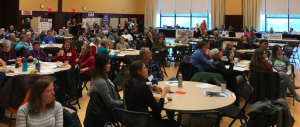
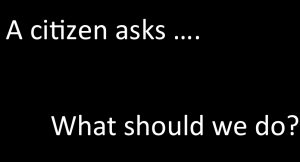
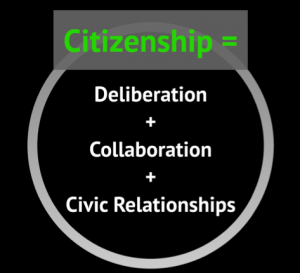
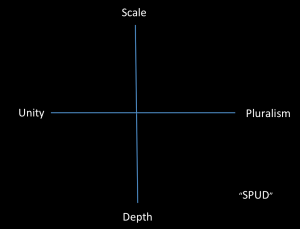
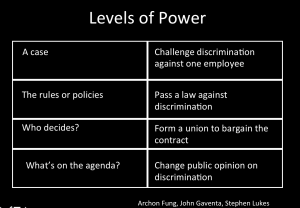
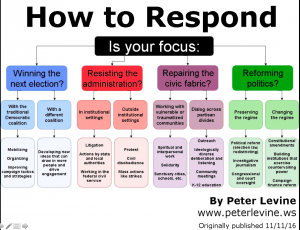

 Tech Tuesdays are a series of learning events from NCDD focused on technology for engagement. These 1-hour events are designed to help dialogue and deliberation practitioners get a better sense of the online engagement landscape and how they can take advantage of the myriad opportunities available to them. You do not have to be a member of NCDD to participate in our
Tech Tuesdays are a series of learning events from NCDD focused on technology for engagement. These 1-hour events are designed to help dialogue and deliberation practitioners get a better sense of the online engagement landscape and how they can take advantage of the myriad opportunities available to them. You do not have to be a member of NCDD to participate in our 